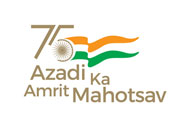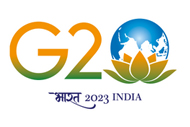About EPCES
Export Promotion Council for EOUs & SEZs
Set Up by Ministry of Commerce and Industry , Dept. of Commerce , Govt. of India.
About EPCES
Overview of EPCES and its key activities.
EPCES represents around 7,000 operational EOUs and SEZ units/developers across the country, contributing nearly 34% of India’s total exports.
Key activities include:
- Organizing Open Houses, stakeholder consultations, seminars and workshops to resolve member issues and share policy updates.
- Taking up industry concerns with key Ministries and authorities including Commerce, Finance, DGFT, CBIC, GST Council, CBDT, RBI and State Governments.
- Participating in and facilitating participation in trade fairs and exhibitions in India and abroad.
- Publishing EPCES News (quarterly), Weekly News, Monthly Trade Bulletin along with circulars, updates and reference publications.
- Organizing buyer–seller meets, delegations and business networking platforms.
- Providing financial support through the MAI scheme for global marketing and participation in trade events.
- Conducting policy studies and industry consultations.
- Issuing Non–Preferential Certificate of Origin to eligible members.
Activities of EPCES
Key activities
- Organizing Open Houses, stakeholder consultations, seminars and workshops to resolve member issues and share policy updates.
- Taking up industry concerns with Ministries and authorities including Commerce, Finance, DGFT, CBIC, GST Council, CBDT, RBI, State Governments and other concerned Ministries/Departments.
- Participating in and facilitating participation in trade fairs and exhibitions in India and abroad.
- Publishing EPCES News (quarterly), Weekly News, Monthly Trade Bulletin along with circulars, updates and reference publications.
- Organizing buyer–seller meets, delegations and business networking platforms.
- Providing financial support through the MAI scheme for global marketing and participation in trade events.
- Conducting policy studies and industry consultations.
- Issuing Non–Preferential Certificate of Origin.
Recent Achievements
Major policy improvements facilitated for EOUs & SEZs.
Through continuous engagement with the Government, EPCES has contributed to several major policy improvements, including:
- Extension of RoDTEP benefit to SEZs and EOUs (extended till 31.03.2026).
- Exemption from mandatory Quality Control Orders for imports meant for exports.
- Permission for IT/ITES SEZs to serve the domestic market through new SEZ Rule 11B.
- Hybrid working flexibility extended till 31.12.2027 under SEZ Rule 43A.
- Clarification on FEMA regulations that they will not apply to certain service transactions between SEZ units and between DTA units and SEZ units for export of services.
- Continued zero-rating benefits for lease rentals and charges related to employee welfare facilities for SEZ units.
- Streamlined compliance by enabling quarterly filing of returns instead of monthly filing for EOUs.
- Exemption from restrictions on importing IT hardware and movement of used IT assets for captive use by SEZs and EOUs.
Membership EPCES
Eligibility, application process and key member entitlements.
Membership is mandatory for every EOU/SEZ Unit and SEZ Developer.
Any eligible EOU/SEZ Unit or SEZ Developer can become a member of EPCES.
How to apply:
- View the detailed process on the EPCES page: How to Become a Member of EPCES.
- Submit your online application through the DGFT common membership portal (e-RCMC): DGFT e-RCMC Portal.
Membership Benefits
- Free Monthly Trade Bulletin covering regulatory and policy updates.
- Weekly SEZs/EOUs & Trade News for timely information on sector developments.
- Free quarterly Newsletter with insights, circulars and best practices.
- Free EPCES query answering service via email: query@epces.in.
- Resolution of issues with Government through representations and direct engagement with relevant authorities.
- Timely updates shared through email and dedicated WhatsApp groups for faster access to important information.
Download EPCES Brochure
Access a complete overview of EPCES initiatives, services and opportunities.
Access the EPCES brochure for a concise summary of our services, membership benefits, events and contact details. Click below to download the PDF.
Subscribe Publication
Get EPCES updates directly in your inbox.
Subscribe for latest updates
Please subscribe to receive the latest updates, notifications, public orders, notices, circulars, and EPCES publications. Subscribing ensures you receive timely policy updates and sector news directly via email.

